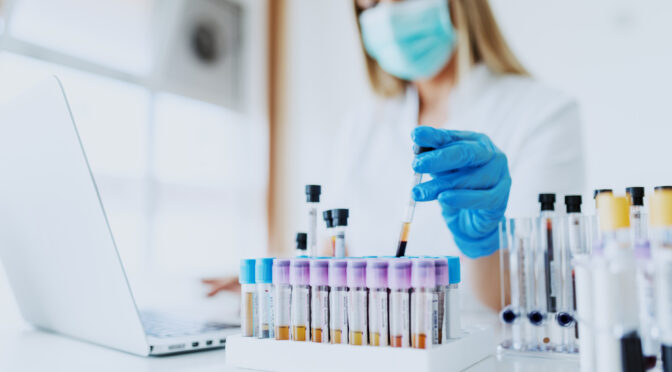Healthcare professionals agree that early diagnosis improves the chances for successful cancer treatment. If you experience symptoms or a screening test calls for a closer look, these are the tests most frequently used to make a diagnosis of cancer.
1. Blood chemistry test
Our organs routinely release enzymes, electrolytes and other substances into the bloodstream. Abnormally high or low levels could be a sign that kidneys, liver or other organs are not working properly, which could be due to cancer.
2. Complete blood count (CBC)
A CBC, which is a detailed analysis of the bloodstream, is often conducted during routine physicals. Factors include the number of red and white blood cells and platelets, as well as the amount of hemoglobin, which is the protein that carries oxygen. CBCs are particularly useful in diagnosing cancers in the blood stream, known as leukemia.
3. Liquid biopsy
Liquid biopsies are used to find out if cancer cells or DNA from tumor cells are present in the blood. This test can be also part of determining appropriate cancer treatment and follow-ups to see if the treatment is working.
4. CT scans and MRIs
Both CT scans and MRIs involve taking detailed pictures of your body’s interior. A CT scan uses an x-ray machine, while an MRI involves a magnet and radio waves.
5. Biopsy
A biopsy is most often used to diagnose cancer, but it can also help diagnose other health problems, such as cirrhosis. When lesions, lumps or other tissue abnormalities are detected, a doctor will remove a sample so the cells can be studied more closely.
Cancer Treatment for Advanced Cases
At Issels®, our non-toxic programs have helped to achieve long-term remission in patients, even if they are already in Stage IV. Visit our website to read and hear their testimonials.

